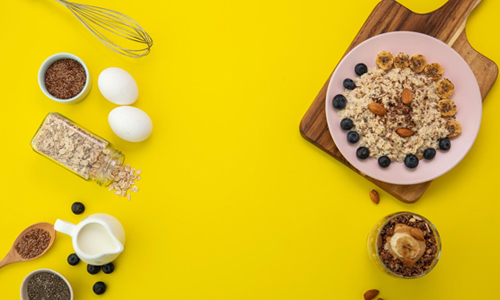The Science of Beauty: How Ingredients in Your Products Affect Your Skin

Understanding the science behind beauty products is essential for making informed choices about skincare. Our skin is the largest organ of the body and acts as a protective barrier. The ingredients in the products we use can significantly impact its health and appearance. This article explores how various components in beauty products affect your skin and why choosing the right ingredients matters.
The Role of Active Ingredients
Active ingredients are the core components in skincare products responsible for delivering specific benefits. These include:
Retinoids: Known for their anti-ageing properties, retinoids increase cell turnover, stimulate collagen production, and reduce the appearance of fine lines and wrinkles. Derived from vitamin A, they can make the skin more sensitive to sunlight, so it’s crucial to use them in conjunction with sunscreen.
Hyaluronic Acid: This powerful humectant attracts and retains moisture, making it an excellent hydrating agent. It helps to plump the skin, reducing the appearance of fine lines and giving the skin a more youthful appearance.
Vitamin C: A potent antioxidant, vitamin C brightens the skin, improves skin tone, and helps protect against environmental damage. It also boosts collagen production, contributing to firmer, more resilient skin.
Emollients and Humectants: The Moisture Boosters
Maintaining skin hydration is crucial for a healthy complexion. Emollients and humectants play key roles in achieving this balance.
Emollients: These ingredients smooth and soften the skin by filling in the gaps between skin cells. Common emollients include shea butter, cocoa butter, and squalene. They help to maintain the skin’s barrier function, preventing moisture loss.
Humectants: Unlike emollients, humectants draw moisture from the environment into the skin. Glycerin, urea, and sorbitol are popular humectants found in skincare products. They help to keep the skin hydrated, especially in dry conditions.
Exfoliants: Renewing the Skin Surface
Exfoliation is the process of removing dead skin cells from the surface, which can enhance the skin’s appearance and improve the efficacy of other skincare products.
Alpha Hydroxy Acids (AHAs): Derived from fruit and milk sugars, AHAs like glycolic acid and lactic acid dissolve the bonds between dead skin cells, promoting their removal and revealing smoother, brighter skin.
Beta Hydroxy Acids (BHAs): Salicylic acid, a common BHA, is oil-soluble, making it particularly effective for oily and acne-prone skin. It penetrates the pores to remove excess sebum and dead skin cells, reducing the occurrence of blemishes.
Antioxidants: Defenders Against Damage
Antioxidants protect the skin by neutralising free radicals, which can cause cellular damage and accelerate ageing. They are vital for maintaining healthy skin.
Vitamin E: This fat-soluble antioxidant helps protect the skin from damage caused by UV rays and pollution. It also has moisturising and healing properties, making it a common ingredient in many skincare formulations.
Green Tea Extract: Rich in polyphenols, green tea extract has anti-inflammatory and antioxidant properties. It helps to soothe the skin and protect it from environmental damage.
The Importance of pH Balance
The skin’s natural pH is slightly acidic, typically around 5.5. Maintaining this balance is crucial for the skin’s barrier function and overall health. Skincare products with a pH level too far from the skin’s natural pH can disrupt this balance, leading to irritation, dryness, and breakouts.
Cleansers: Opt for cleansers with a pH close to that of the skin to avoid stripping away natural oils and disturbing the skin’s barrier.
Toners: These products help to restore the skin’s pH balance after cleansing, preparing it for subsequent skincare steps.
Potential Irritants: What to Avoid
Not all skincare ingredients are beneficial; some can be irritating or harmful, particularly for sensitive skin.
Parabens: Used as preservatives, parabens have been linked to hormone disruption and should be avoided, especially in products for sensitive skin.
Fragrances: While they make products smell appealing, synthetic fragrances can cause allergic reactions and irritation. Opt for fragrance-free products if you have sensitive skin.
Sodium Lauryl Sulfate (SLS): A common detergent in cleansers, SLS can strip the skin of natural oils, leading to dryness and irritation.
Conclusion
Understanding how ingredients in beauty products affect your skin is essential for making informed choices and maintaining healthy skin. By selecting products with beneficial active ingredients, emollients, humectants, antioxidants, and exfoliants, you can enhance your skincare routine and achieve a radiant complexion.
Discover the science of beauty with Lakmé Academy Chennai. Our comprehensive courses teach you how to select and use the best ingredients for optimal skin health. Enrol today and transform your passion for beauty into a professional career!
Career Opportunities
Graduates of Lakmé Academy have gone on to work in the makeup industry in a variety of fields, including retail cosmetics, fashion, photography, bridal, film, and television services!
Some of the Career Opportunities are:
- High-end Salons
- Designer Runway Shows
- Media & Entertainment
- Freelance Makeup Artist
- Fashion Photography
- Fashion Promotion Events
- Beauty/Spa Salon Managers
- Retail Cosmetic Professional
- Modeling Agencies
- Beauty Training
- Print Advertising

